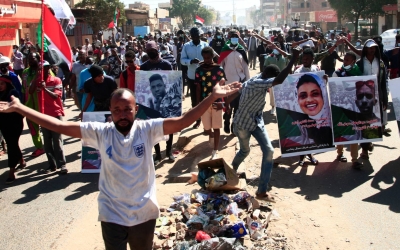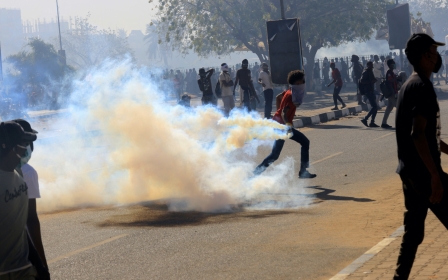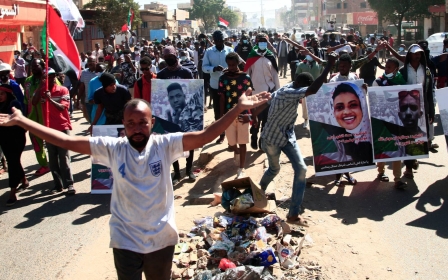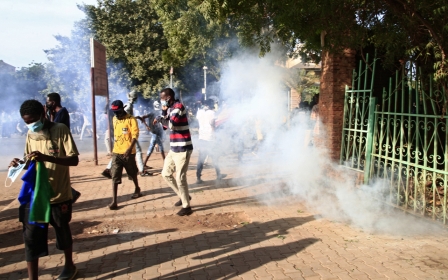Sudan security deploys to block anti-coup rallies, two protesters reported killed
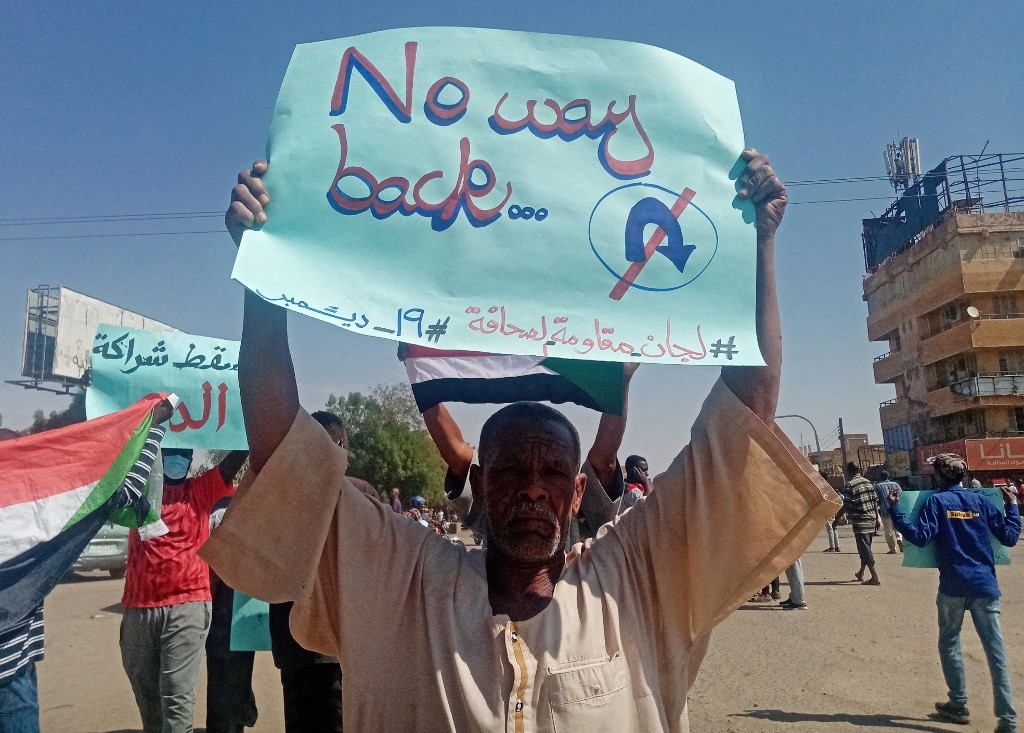
Security forces killed two people during protests in Sudan on Sunday against military rule, a doctors' committee said.
This brought to 56 the death toll in protests since a coup on 25 October, the Central Committee of Sudanese Doctors said. The committee said that the first man was in his twenties and died of injuries to the head in the capital, Khartoum, while the second man died of gunshots to the chest in Omdurman.
Security forces have not yet commented on the deaths, according to Reuters.
Security forces fired tear gas at anti-military protesters in Sudan's capital Khartoum, televised images showed, as demonstrators marched towards the presidential palace in the 12th round of major protests since the 25 October coup.
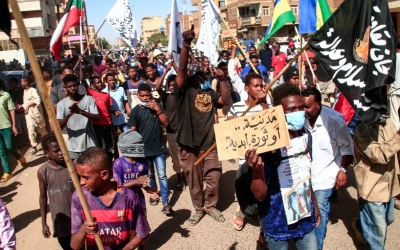
Earlier on Sunday, Sudanese security forces deployed in large numbers, setting up roadblocks in the capital Khartoum amid calls for pro-democracy rallies in "memory of the martyrs" killed in recent protests.
Communications, including the internet and phone lines, have been severely restricted, while armed officers blocked key bridges across the Nile river connecting Khartoum to its suburbs.
Web monitoring group NetBlocks said that mobile internet services had been cut from mid-morning ahead of the planned protests, the first of the new year.
Activists use the internet for organising demonstrations and broadcasting live footage of the rallies.
Sudan has a long history of military coups but had been on a fragile journey towards civilian rule since autocrat Omar al-Bashir was deposed in 2019 following mass popular protests.
Nation in turmoil
But the country has been plunged into turmoil since military leader General Abdel Fattah al-Burhan - the de facto leader since Bashir was removed - launched a coup on 25 October 2021 and detained Prime Minister Abdalla Hamdok.
Hamdok was reinstated on 21 November, but mass protests have continued because demonstrators do not trust veteran general Burhan or his promise to take the country towards full democracy over time.
Activists have kept up their campaign of street demonstrations against the army's takeover for more than two months now, despite a crackdown that has seen at least 53 people killed and hundreds injured in protest-related violence, according to the pro-democracy Sudan Doctors Committee group.
The protesters demand that soldiers "go back to the barracks" and are calling for a transition to civilian rule.
The rallies have been repeatedly broken up by security forces firing rounds of tear gas, as well as charges by police wielding batons and shooting bullets into the air.
Heavy machine guns
On Thursday, at least four people were shot dead in Khartoum when security forces cracked down on mass rallies that saw tens of thousands take to the streets chanting "no to military rule".
Burhan denies the takeover was a coup and on Friday a close adviser warned that "the demonstrations are only a waste of energy and time" which will not produce "any political solution".
On Sunday, soldiers in armoured vehicles mounted with heavy machine guns were posted at strategic road crossings, an AFP reporter said.
Activists say 2022 will be "the year of the continuation of the resistance" in posts on social media.
They demand justice for the dozens killed since the coup, as well the more than 250 killed during the mass protests that began in 2019 and paved the way for the toppling of Bashir.
Activists have condemned sexual attacks during protests on 19 December, in which the UN said at least 13 women and girls were victims of rape or gang rape.
The European Union and the United States issued a joint statement condemning the use of sexual violence "as a weapon to drive women away from demonstrations and silence their voices".
Over 14 million people, one in three Sudanese, will need humanitarian aid next year, according to the UN Office for the Coordination of Humanitarian Affairs, the highest level for a decade.
Middle East Eye delivers independent and unrivalled coverage and analysis of the Middle East, North Africa and beyond. To learn more about republishing this content and the associated fees, please fill out this form. More about MEE can be found here.


